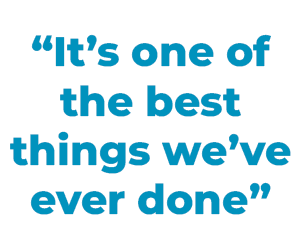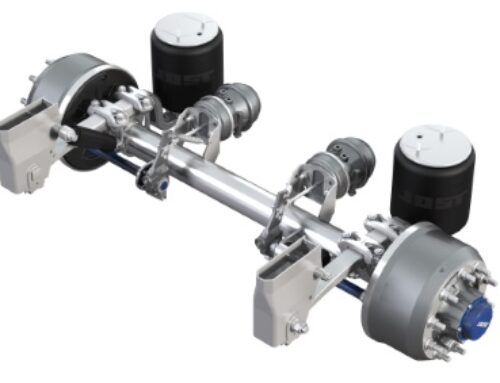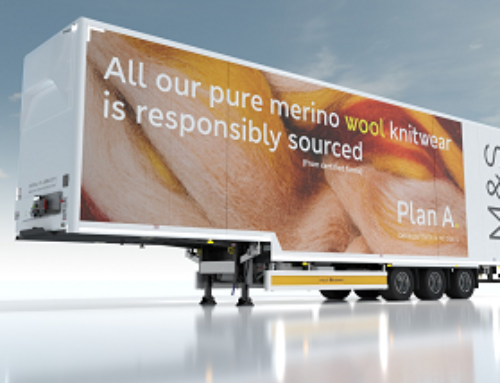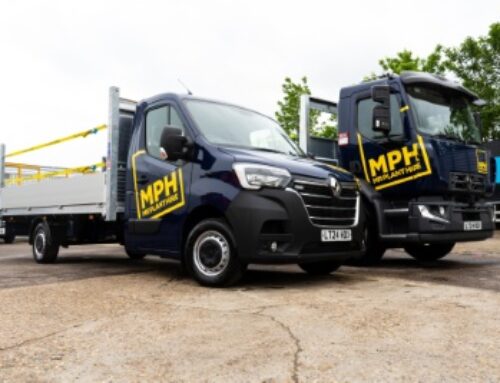Marshall assesses impact of red diesel restrictions
Two years on from the UK government’s restrictions on red diesel coming into force, Marshall Fleet Solutions has reflected on the consequences of the changes for the refrigerated transport sector.
“In April 2022 the UK government enacted restrictions on red diesel, aiming to reduce usage of the discounted but environmentally harmful fuel,” said Peter Staines, head of renewables at Marshall Fleet Solutions.
“Prior to the reform, a number of studies had been carried out to ascertain how the use of red diesel was impacting the environment.
“These studies found that red diesel accounted for 15 per cent of all diesel used in the UK, resulting in nearly 14 million tonnes of CO2 per year being emitted into the atmosphere each year.”
Since 2022, the transport refrigeration logistics industry has undeniably shown increased interest in sustainable alternatives to red diesel, reports Peter.
“This can at least partly be explained by diesel costs, which averaged a 20 per cent increase from April to December 2022, according to a study conducted by the RHA. By contrast, alternatives now appear more attractive – prompting fleet operators to explore options such as electric refrigeration units and HVO fuels.
“As evidence of this trend, since 2022 Marshall Fleet Solutions has now supplied eight Titan trailer solar systems to a variety of customers including Tesco, Ocado and Samworth Brothers.
“Titan is MFS’ innovative system for refrigerated transport vehicles that captures and stores solar energy and converts it to power onboard refrigeration units. In addition, we have seen interest in newly launched products such as the Advancer-e, Thermo King’s first all-electric Advancer unit.”
While more manufacturers and dealers are embracing future-proof offerings in order to align with environmental restrictions and sustainable supply chain commitments, says Peter, safety nets are still crucial if operators are to make the switch to less familiar but environmentally promising technologies.
“Affordability remains a major barrier to adoption—especially given the intense cost pressures facing fleet operators,” he continued.
“Following the government’s March budget, for example, industry consensus appears to be that the measures announced fall short of the support required for fleet operators to phase out their use of traditional diesel vehicles in favour of new more sustainable models…
“Considering these costs, operators will likely view purchasing a sustainable transport refrigeration unit as a much more palatable alternative to replacing a whole trailer that has not yet fulfilled its lifespan.
 “Frigoblock and Advancer electric refrigeration units, for instance, are comparatively affordable and could potentially extend the life of current fleet operations, saving money in the short and long term.”
“Frigoblock and Advancer electric refrigeration units, for instance, are comparatively affordable and could potentially extend the life of current fleet operations, saving money in the short and long term.”
Perhaps an even more pronounced trend since 2022 has been the rapid uptake of HVO as an affordable near-term ‘bridge’ to cleaner transportation, says Peter.
“HVO is biodegradable, odourless, and can yield a 90 per cent reduction in CO2 emissions. Crucially, HVO is a drop-in replacement for gas oil or red diesel, meaning it can be used in existing diesel engines. This makes it an excellent option for operators looking to make their fleets more sustainable while avoiding unplanned and untimely capital expenditures.
“Across the transport refrigeration sector, this means that we may see operators making the journey to sustainability in three broad stages: the first characterised by the shift to lower-emission swap-in fuels such as HVO; the second defined by purchases of efficient, environmentally friendly refrigeration units; and the third being a longer shift to alternative powertrains and purchases of new vehicles and trailers.
“Of course, the picture varies if you zoom in: some operators will not yet be approaching stage one, whereas others are already attempting to go fully electric.”
While there is very limited public research on how the red diesel switch has directly impacted the environment, adds Peter, there is evidence to suggest the restrictions, though fiscally strenuous, have had an impact.
“We are already starting to see the refrigerated transport industry adopting sustainable alternatives in place of traditional increasingly costly options. Regardless of the effectiveness of these specific measures to phase out the use of red diesel, Marshall Fleet Solutions strongly believes that sustainability is the long-term objective within the transport refrigeration sector.
“We have stayed ahead of this trend, from introducing highly efficient Thermo King Advancer units to more recently launching our Titan system and expanding our portfolio with all-electric offerings.”











